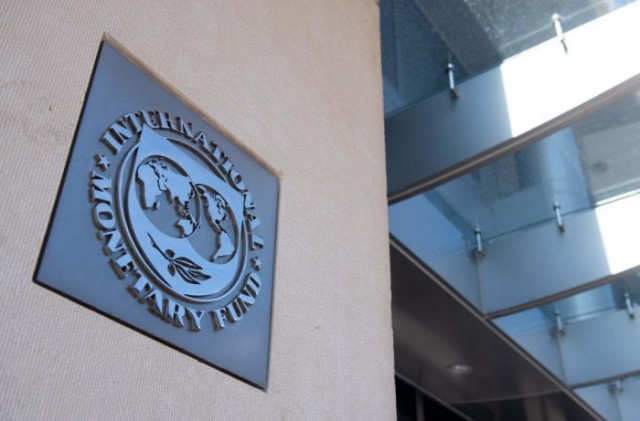IMF programme, SBP bill open to reviews, says Azhar
New finance minister says difficult decisions will be taken to consolidate economic stability

The government has the right to review the International Monetary Fund (IMF) programme and is open to recommendations to improve the bill regarding autonomy to the State Bank of Pakistan (SBP), new Finance Minister Hammad Azhar said on Wednesday.
Addressing his maiden press conference after taking over the most difficult job of reviving the national economy, Azhar said that his government would take the SBP Amendment Bill to parliament with an “open mind”.
The unparalleled autonomy proposed for the central bank, which is now described by critics as a state within the state; and the acceptance of “tough conditions” for revival of the IMF programme are stated to be the reasons behind sacking of Dr Hafeez Shaikh as finance minister.
The SBP autonomy bill is in accordance with the best international practices but “we will take it to the parliament with an open mind and accept the recommendations”, Azhar said, while responding to a question. He added that some of the criticism against the bill was unjustified.
Azhar remained non-committal when he was asked whether the government would make the IMF technical mission’s report public to nullify the allegations that some of the drastic amendments were not proposed by the IMF and instead its name was used by the vested interests.
The Express Tribune, in a detailed report on March 9, had disclosed many amendments that are proposed in the bill are not even recommended by the IMF, while the cabinet had approved the bill on March 9 – without discussing its details.
The powers proposed in the amendments to the SBP Act 1956 were beyond the acceptable threshold of autonomy that any institution needs to work free from political influence, according to the critics of the bill.
Everything revolves around the personality of the SBP governor. The governor will be the chairman of the SBP board, the chairman of the Monetary Policy Committee and the chairman of the Executive Committee, according to the bill.
The government can also review the IMF programme, said Azhar, while responding to another question whether the government will review the design and the harsh conditions set for the revival of the fund programme. The minister said that it was the right of the government to review the programme at any stage, even before the scheduled quarterly reviews.
Pakistan implemented over two-dozen conditions to get the programme restored, including laying out a plan to increase electricity prices by 36% and impose taxes over Rs700 billion. The IMF programme is not static and the structural benchmarks can be renegotiated in the light of the adverse implications of the deadly pandemic on the country, said a government official.
The new finance minister was upbeat about the country’s economic prospects, unlike a gloomier World Bank report that predicted only 1.3% growth rate this year and 2% in the next fiscal year. The minister said that the central bank has doubled its growth forecast to 3% for this fiscal year and in the next year the growth rate will be even higher than this.
Pakistan’s exposure to debt-related shocks will remain elevated, the WB had said in its annual flagship South Asia Economic Focus report released on Tuesday. It added that output growth was expected to recover gradually over the medium-term, averaging 2.2% over fiscal year 2020-21 and 2022-23, mostly due to contributions from private consumption.
The new minister commended the efforts of his two predecessors. “I would take guidance from both Asad Umar and Hafeez Shaikh, as they helped stabilise the economy that was at the brink of default when PTI [Pakistan Tehreek-e-Insaf] came to power,” Azhar said.
The economic stability would be consolidated further and the difficult decisions will be taken, if needed, he continued. The government has to take tough decisions for the country in view of the given situation, he added. “Basis of our decisions will be the interest of the country and its people.”
The minister admitted that the people were facing hard times due to spiralling prices of wheat, sugar and other commodities, vowing that the prices will be checked with the coordination of the provinces.
The minister said that during the tenure of Dr Hafeez Shaikh, the current account deficit turned into surplus and the primary budget was also in surplus. He added that the foreign exchange reserves increased by $9 billion.
Azhar said that the government raised $2.5 billion debt at competitive prices and the rates were better than the ones paid by other countries of similar credit ratings. He said that the Sukuk bonds will also be floated but the date has not been finalised yet.





1733130350-0/Untitled-design-(76)1733130350-0-208x130.webp)












COMMENTS
Comments are moderated and generally will be posted if they are on-topic and not abusive.
For more information, please see our Comments FAQ